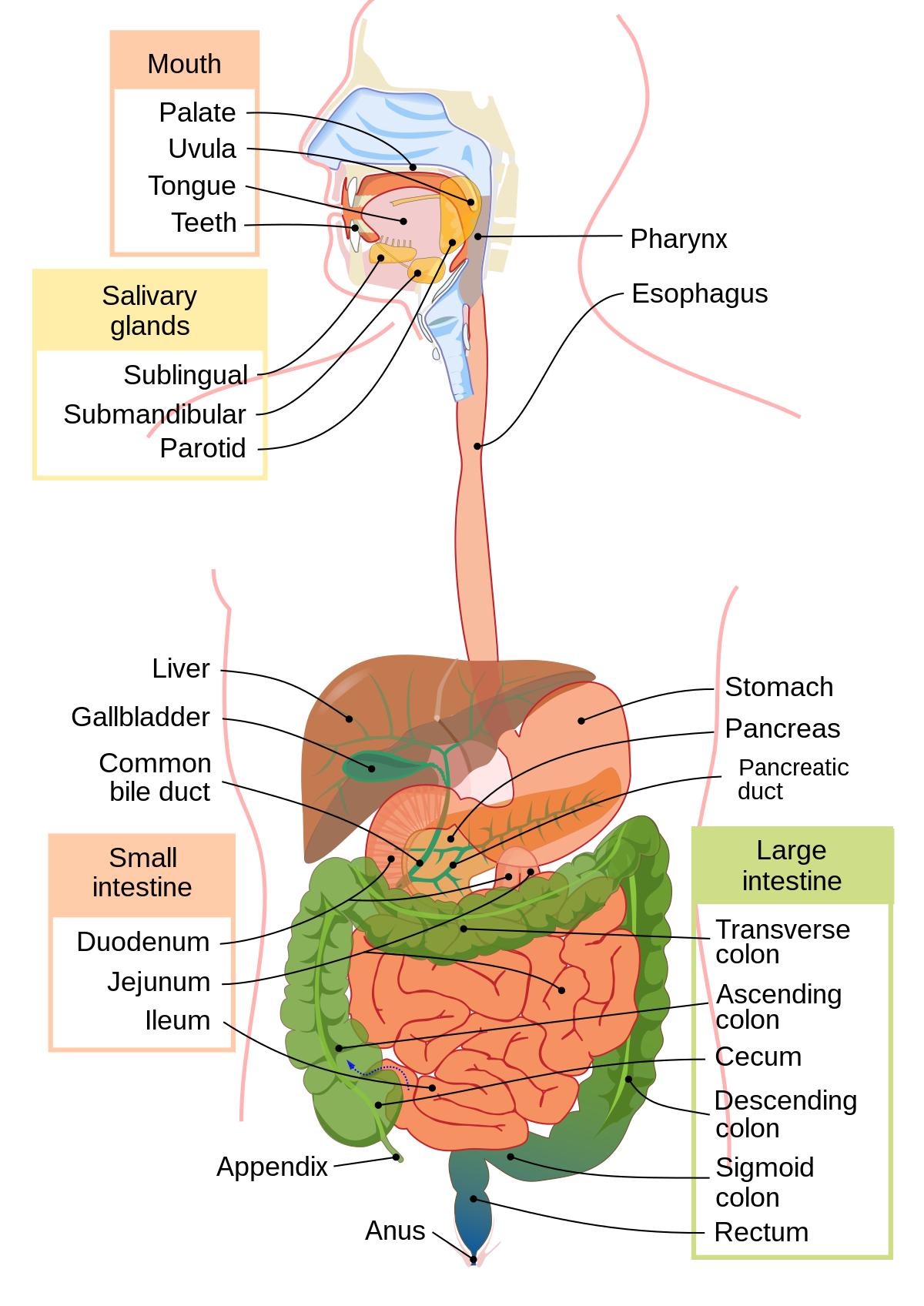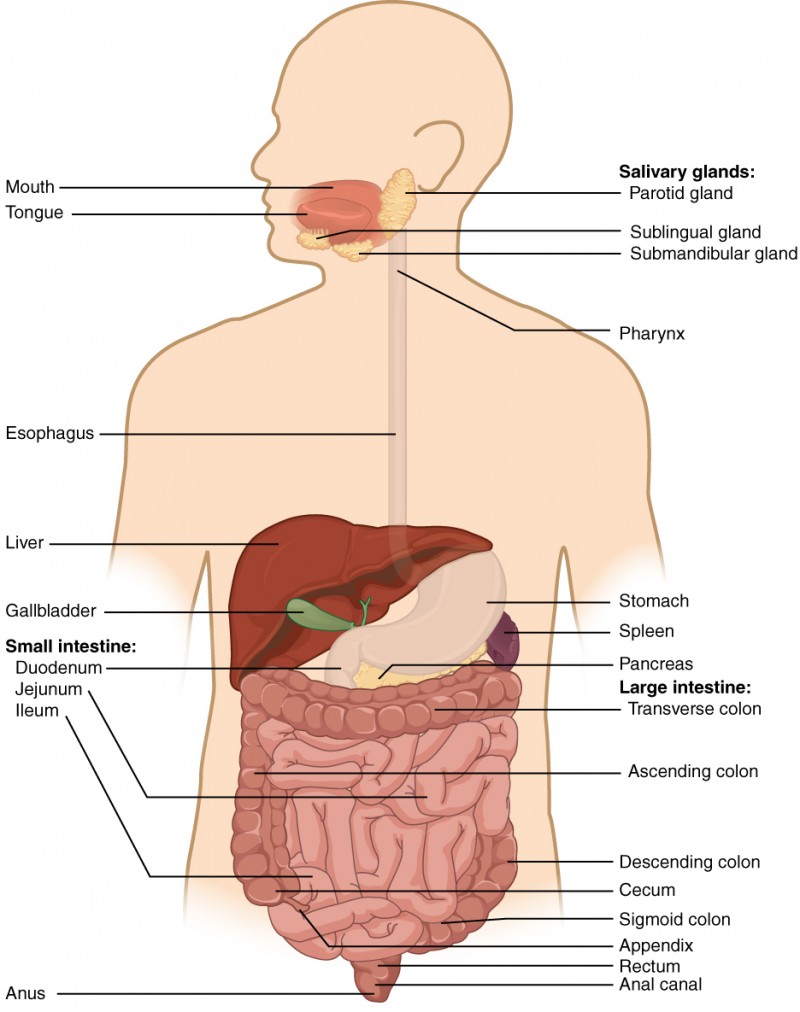 Introduction:
Introduction:
The digestive system is a complex network of organs and processes that work together to break down food into nutrients, absorb those nutrients, and eliminate waste products. It is responsible for supplying the body with essential energy and building blocks for growth, repair, and maintenance. In this article, we embark on a journey through the digestive system, unraveling its intricacies, functions, and significance in human physiology.
Anatomy of the Digestive System:
The digestive system consists of a series of organs arranged in a continuous pathway from the mouth to the anus. Key components of the digestive system include:
1. **Mouth:** The digestive process begins in the mouth, where food is chewed and mixed with saliva, which contains enzymes that initiate the breakdown of carbohydrates.
2. **Esophagus:** A muscular tube that connects the mouth to the stomach, the esophagus transports chewed food to the stomach through a series of coordinated muscle contractions called peristalsis.
3. **Stomach:** The stomach is a muscular organ that stores and churns food while mixing it with gastric juices, including hydrochloric acid and digestive enzymes, to further break down proteins and kill bacteria.
4.Small Intestine:
The small intestine is where most of the digestion and absorption of nutrients occur. It consists of three segments: the duodenum, jejunum, and ileum. Digestive enzymes from the pancreas and bile from the liver aid in the breakdown of carbohydrates, proteins, and fats, while villi and microvilli increase the surface area for nutrient absorption.
5. **Liver:**
The liver plays a crucial role in digestion by producing bile, a substance that emulsifies fats and facilitates their digestion and absorption in the small intestine. The liver also processes nutrients absorbed from the small intestine and detoxifies harmful substances.
6. **Gallbladder:**
The gallbladder stores and concentrates bile produced by the liver, releasing it into the small intestine in response to the presence of fatty foods.
7. **Pancreas:**
The pancreas produces digestive enzymes (such as amylase, lipase, and proteases) and bicarbonate to neutralize stomach acid, aiding in the digestion of carbohydrates, fats, and proteins in the small intestine.
8. **Large Intestine (Colon):**
The large intestine absorbs water and electrolytes from undigested food residues, forming solid waste products (feces) that are eventually expelled from the body through the anus.
Functions of the Digestive System:
1. **Ingestion:** The process of taking food into the mouth and swallowing it initiates the digestive process.
2. **Mechanical Digestion:** Chewing (mastication) in the mouth and mixing and churning in the stomach break down food into smaller particles, increasing its surface area for enzymatic digestion.
3. **Chemical Digestion:** Enzymes produced by the salivary glands, stomach, pancreas, and small intestine catalyze the breakdown of carbohydrates, proteins, and fats into smaller, absorbable molecules.
4. **Absorption:** Nutrient molecules (such as glucose, amino acids, fatty acids, and vitamins) are absorbed through the walls of the small intestine into the bloodstream and transported to cells throughout the body for energy production, growth, and repair.
5. **Motility:** Peristalsis, rhythmic contractions of smooth muscle in the digestive tract, propels food and waste products through the digestive system, ensuring efficient digestion and elimination.
6. **Secretion:** Glands throughout the digestive system secrete digestive juices containing enzymes, acids, and other substances necessary for breaking down food and facilitating nutrient absorption.
7. **Storage and Elimination:** The digestive system stores food in the stomach and waste products in the large intestine until they are ready to be eliminated from the body as feces.
Importance of the Digestive System:
The digestive system plays a critical role in maintaining overall health and well-being. Its functions are essential for:
1. **Nutrient Absorption:** The digestive system ensures the absorption of vital nutrients (such as carbohydrates, proteins, fats, vitamins, and minerals) necessary for cellular function, growth, and repair.
2. **Energy Production:** Nutrients absorbed from the digestive tract provide the body with the energy needed for metabolic processes, physical activity, and vital organ function.
3. **Immune Function:** The digestive system helps protect the body from harmful pathogens and toxins by serving as a barrier against infection and supporting the immune response.
4. **Waste Elimination:** Efficient digestion and elimination of waste products prevent the buildup of toxins and metabolic byproducts in the body, promoting detoxification and waste removal.
5. **Gut-Brain Connection:** Emerging research suggests that the gut-brain axis, the bidirectional communication pathway between the gut and the brain, plays a crucial role in regulating mood, behavior, and cognitive function.
Conclusion:
The digestive system is a marvel of biological complexity, orchestrating a symphony of processes to convert food into energy and essential nutrients while eliminating waste products. Understanding its anatomy, functions, and importance in human physiology is essential for maintaining optimal health and well-being. By nourishing the body with a balanced diet, staying hydrated, promoting digestive health through probiotics and fiber, and practicing mindful eating habits, individuals can support the digestive system and optimize overall health for a vibrant and fulfilling life.



You must be logged in to post a comment.